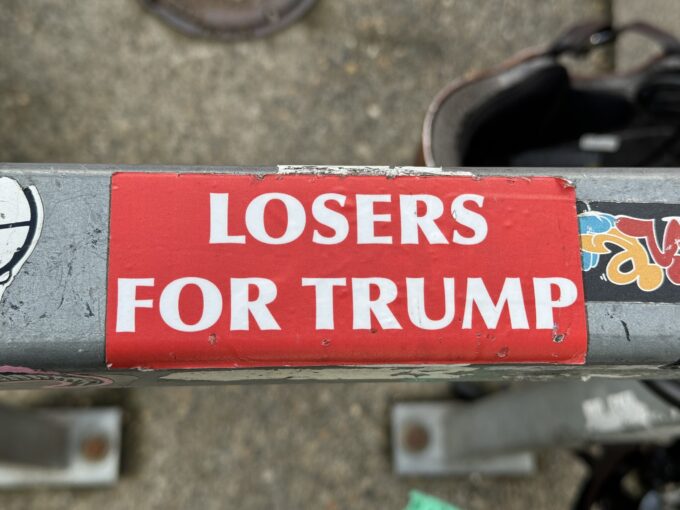
the socialist party
Published on http://www.counterpunch.org/
“The reason Sanders is unlikely to win the nomination for president is because only 31% of Americans “react positively” to the word socialism. However, among 18 to 29-year olds, about half view socialism favorable and only 47% see capitalism as a good thing.”
— RMuse, “According To Polls Most Americans Are Socialists Like Bernie Sanders,” Politics USA, June 3, 2015
It is not easy to write about any of these hot issues without taking one side or another and so join an “all shouting and no listening” match. We are not even close to listening to each other about these issues. That I can write about.
I do not believe that “telling the public what’s really going on,” as Paul Krugman puts it, is an easy matter. Affective, prereflective responses make us human and come out of our own experiences, so that even though we may dismiss anecdotal evidence or our “gut feelings,” they remain at the root of our convictions. Appeals to the affective/emotional/sensuous way of being in the world have more power, a magnetic charisma that emotion generates, than do sequential arguments, historical references, comparative framing and close readings of position papers, platforms, and encyclicals.
When a level of public discourse falls more deeply into 140 character tweets of sharp, determinate assertions, seeking to rouse a following in a daily cyberspace Bastille Day, you wind up with a Donald Trump who trumpets loudly or a Dr. Ben Carson whose soft spoken, beyond argument delivery tells us that we all instinctively know what’s what, that no long harangues will replace what we know is true in our gut. On that gut level, George W. Bush knew Putin was a man he could deal with, that WMDs were in Saddam’s Iraq and when it was time to declare victory in Iraq.
When you get to a level of response emerging from the mind and not the gut, from reason supplemented with a sympathetic imagination, what the poet Shelley referred to as a capacity to imagine the life-worlds of others so as to legislate an appropriate just politics, you task listeners and readers beyond their personal interest level. For “Everyday Americans,” as Hillary refers to people not in the salaried political class or those who profit by lobbying that class, there are no wages paid or degrees granted for “studying” and researching issues, even those that may directly affect them. I am thinking first of human caused global warming, and secondly of a wayward financialized capitalism twisting democracy into plutocracy. When a fiery emotional response has already settled the issue, why dig deeper, and question the soundness of your own personal opinion? When personal opinion rules there is little need to re-examine or heed contesting opinions. No voice sounds better than your own.
There’s all of that and also the fact that any proper examination requires an understanding of an historical and comparative framing of an issue — steady trips to Wikipedia — and a kind of deconstructive adeptness that unravels and exposes hype and façade, and a self-reflexive scrutiny of one’s own experiential and emotional positioning. As sexy and exciting as this sounds, a title not out to incite already packaged emotional responses would not only not be pithy and sharp but rather more like an endless prolegomena to all future politics. In other words, the long of what we can get short elsewhere. The tweet of endless characters.
So here are the issues of that sort of catchy title list:
“Top 0.1% of US households own as much wealth as the bottom 90%, adjusting for inflation; Today’s average hourly wage has just about the same purchasing power as it did in 1979; Fifty-nine percent of self-identified conservative Republicans said they don’t believe that climate change is happening now, and 70 percent said they don’t believe humans are responsible for it; The only people for whom war was a success are the super-rich CEOs of war industry corporations who made a killing during the wars we launched since 2001; Finance has penetrated every aspect of economic and social life, and turned towards extracting profit from individual income; Government is not willing to touch the financial system at present.”
These phrases at once become problem issues that may not register as problems or may be immediately rejected or demolished, but each certainly, if pursued, requires study. Those we don’t pursue dwell in a domain of undecidability. With many issues, the American culture is not ready to come to any clear decision. And it is hard to say that events can push such a decision. We remain racist regardless of our proclamations and legislation. What is distorted in our imagination, emotions and reasoning may not dissolve when confronted with the Black Lives Matter movement. Neither the destructive force of the Great Recession nor the Occupy Wall Street protest has led us to any clear, concerted effort to remodel our economic system.
Sometimes the unreadiness of a culture itself nixes our proclamations and legislation, as with the ERA amendment, and most recently, immigration, taxes, and a strategy in Syria. What becomes decidable extends beyond the purviews of reason, which not only comes afterward but also arms all sides. What leads us out of undecidability is as hard to foresee as the movement and eruption of tectonic plates. What seems to be suddenly conceivable to us becomes representational, not as we would have it but in its full otherness. Undecidability sounds bad but it is an advance when compared to the immoveable imperviousness of where we are on so many issues.
We are approaching but have not yet reached an undecidable state in regard to our present corrupted form of capitalism. It has not sufficiently darkened in our minds to bring us even to that point where doing something corrective is counterbalanced by continued laissez-faire. We live in an unquestioned idea of free market, innovative, liberating capitalism, an ideal that may have Platonic worth but has not been seen in the U.S. since before Reagan’s presidency. `Whether we have a Progressive/Liberal sense that the damages of capitalism need to be field dressed — a “triage” approach — or a Conservative/Neoliberal idea of a “true, ideal” capitalism — the model David Brooks evokes — or a Democratic Socialist view that Bernie Sanders advocates that deep structural changes to capitalism need to be made, the fact remains that with the Great Recession the scaffolding upon which our capitalism was resting collapsed. Something was rotten in the financial practices of Wall Street. And something was rotten in a capitalist economic system that has led to the dark and deep, untraceable legerdemain of those financial practices. A financialized capitalism is not what we signed on for. Both Liberal and Neoliberal politics, each in their turn, are complicit in this gradual but steady fabrication of the monster that now rules what is very far from an egalitarian democracy. No form of socialism has been an accomplice in this crime.
Unfortunately, the word “socialism” is not undecidable in the American cultural imaginary. We are not even ambivalent. It’s catechism: “Socialism is loss of both economic and individual freedom, a relinquishing to a totalitarian State our own personal freedom to choose.” What Bernie Sanders may succeed in doing is bringing the word “socialism” to a questioning stage, to a point where it may provide us with a critical rod with which to tame our miscreant capitalism. Hillary Clinton goes so far as to admit that our capitalist system is out of whack, an admission that signals she has placed “The Third Way” politics of her husband under investigation. Why lean into a system and seek to rob some of its fire if doing so taints you? Why touch the Tar Baby of a corrupted capitalism? Why be conciliatory when what stands before you deserves no such conciliation?
It seems clear that Hillary has a long way to go to reach the position Bernie Sanders is already in, that is, knowing that triage does not work but that the battlefield itself must change. The grounding drive of socialism is a hunger for economic equality emerging from the belief that without such intention, political equality erodes. Democracy gives way to plutocracy when wealth and the leverage that wealth provides to tilt all decisions in its favor is not countered by thriving working and middle classes who can leverage their own power in their own interests. Such power to lobby on behalf of Have Nots and Have Less Each Day, on behalf of an environment being “creatively destroyed” in the name of profit, and on behalf of democracy itself has been diminished, eroded by an economic system in need of major surgery.
A pundit has remarked that Sanders would be served better by not using the term “socialist” because it sets him up for immediate destruction if not by Liberals but certainly by Neoliberals. Would you ask a Christian to hide the New Testament? Or, a Jew to hide the Old Testament? We may, unjustly and blindly, be hoping that every Muslim will hide the Koran but we do not expect our Western sacred texts to be denied. Socialism is Sanders’ critical rod; it provides him with his principles, arguments and understanding. It is the fount of his tutorial of societal regeneration that guides such regeneration. Sanders’ Democratic Socialism does not seek a dictatorial imposition of economic equality but rather in democratic fashion urges recognition of the relationship between wealth and power in a democracy and the need to legislate toward an equitable distribution of both, a distribution that turns us away from plutocracy and toward our long lost goal of egalitarian democracy.
In practice that means limiting the reach of profit making while at the same time strengthening the economic muscle of what our high flying Winners call “The Losers.” Neither directive is in an undecidable state but rather both summon instant and sharp rebuttal. Profit making must be denied the frontiers to which it has no right. What the Democratic Socialist stance does is take profit making out of war, prisons and education and allow a reasonable return on investment in health care, pharmaceuticals, and energy. It also continues to support and expand public media as a counter to the media’s dive to the bottom to attract the most eyeballs and computer clicks.
To what degree a “Loser” is in dire straits because of personal choices or for reasons beyond personal control remains unknowable to a society deliberating whether to aid and to what extent, or not aid at all. Liberals may take the high ground and assume some people are “Losers” because they are overwhelmed by circumstances — illness, job loss, home loss, mental and physical impairment. Neoliberals may take the “tough love” ground and assume handouts destroy the will to win. Democratic Socialists want to change the economic conditions within which so many are “losing” and at the same time exchange the capitalist bred notion of Winners and Losers for an egalitarian notion of one among equals.
We are far from bringing issues like abortion and gun control to a state of undecidability. A cemented determinacy preempts a probing questioning of other views as well as our own. Gay marriage moved from determinate refusal to undecidability where, for most, once under such review moved on to a “why not?” And while some few argue that the science is not yet in regarding human activated global warming, a growing number are convinced something must be done. Our need now to deconstruct the mythos of a capitalism that is far from what it is hyped to be requires that we move from dismissal to consideration, to a point we are undecided what path to take. And then a probing interrogation will be a beginning. And that is an advance.














